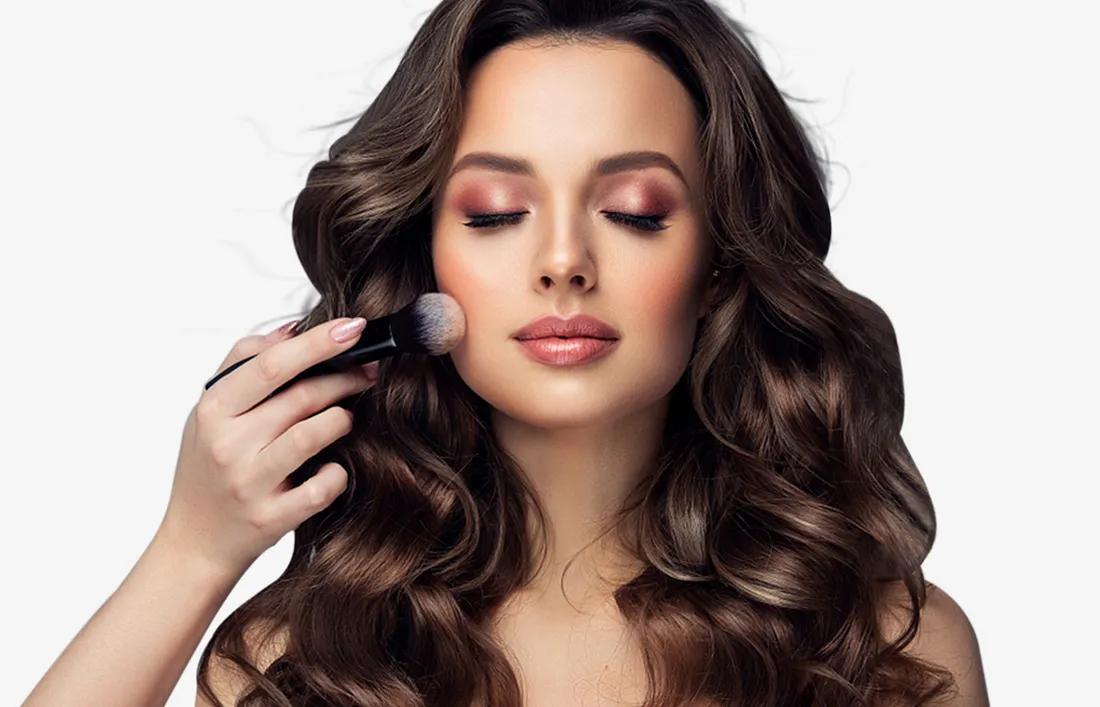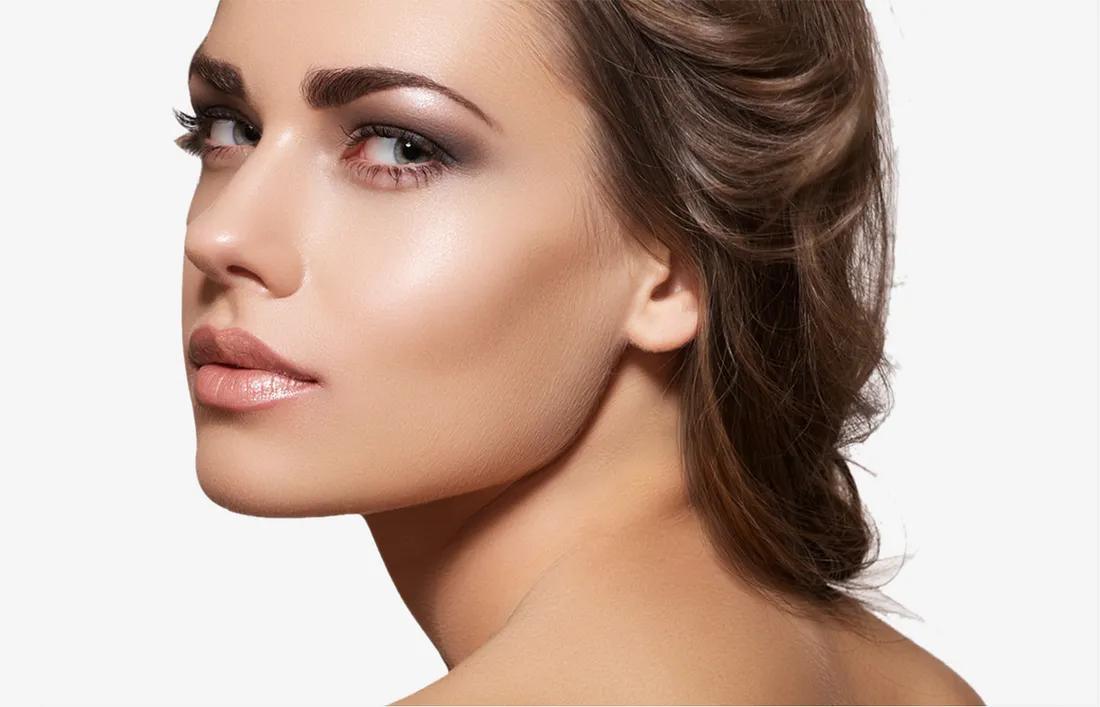Scan for
Download the App
Scan for
Download the App


Makeup has become an integral part of many people’s daily routines, allowing them to enhance their features and express their individuality. From foundation to eyeshadow, lipstick to mascara, the cosmetic industry offers an array of products that cater to diverse preferences. However, amidst the allure of beauty enhancement, concerns arise about whether makeup may have adverse effects on the skin. In this article, we explore the potential side effects of makeup and offer solutions for maintaining healthy skin while enjoying the benefits of cosmetics.

Makeup, in its various forms, refers to products applied to the face or other parts of the body to enhance appearance. The use of makeup dates back thousands of years, with ancient civilizations like the Egyptians and Greeks utilizing natural substances for cosmetic purposes. Today, makeup has evolved into a vast industry with a wide range of products designed for different skin types and preferences.

The popularity of makeup has skyrocketed over the years, driven by the influence of beauty trends, social media, and celebrity endorsements. Makeup serves as a tool for self-expression, creativity, and boosting confidence. However, it’s essential to consider the potential consequences of prolonged and excessive usage.
While makeup can provide a temporary enhancement, it may also lead to various side effects, especially when used improperly or left on the skin for prolonged periods.

One of the most common issues associated with makeup is clogged pores, leading to acne breakouts. Certain cosmetic products contain comedogenic ingredients that block pores and trap sebum, creating an environment favorable for acne-causing bacteria.
Some individuals may experience skin irritation or allergic reactions to certain makeup ingredients. These reactions can manifest as redness, itching, swelling, or rashes, and they often occur due to sensitivity to specific chemicals in the products.
Frequent and improper use of makeup can accelerate the aging process of the skin. Some makeup products contain chemicals that contribute to oxidative stress and collagen breakdown, leading to premature wrinkles and fine lines.
The skin has its natural pH and oil balance, which can be disrupted by certain makeup products. Harsh chemicals in cosmetics can strip the skin of its natural oils, leading to dryness, flakiness, or excessive oil production as a compensatory mechanism.
To make informed decisions about makeup usage, it’s crucial to be aware of harmful ingredients that some products may contain.

Parabens and phthalates are common preservatives used in cosmetics. However, they have been associated with endocrine disruption, leading to potential hormonal imbalances and adverse health effects.
Certain makeup products contain formaldehyde-releasing preservatives, which can irritate the skin and respiratory system. Formaldehyde exposure has been linked to skin sensitivity and dermatitis.
Fragrances added to cosmetics can be composed of various synthetic chemicals that may cause skin irritation or allergies. Unscented or naturally scented products are better options for sensitive skin.

While makeup can pose challenges to the skin, several practices can help mitigate potential issues.
Before applying makeup to the entire face, consider patch testing on a small area of the skin to check for any adverse reactions.
Opt for non-comedogenic makeup products that are less likely to clog pores and contribute to acne formation.
Thoroughly remove makeup at the end of the day to allow the skin to breathe and regenerate overnight.
Implement a skincare routine tailored to your skin type and concerns, ensuring that it includes cleansing, moisturizing, and sun protection.
Apart from external factors, internal aspects like diet and hydration play a crucial role in maintaining healthy skin.

Consuming a balanced diet rich in vitamins, minerals, and antioxidants can promote skin health and combat inflammation.
Adequate hydration supports skin elasticity, texture, and overall well-being. Drinking plenty of water is essential for maintaining healthy skin.
Addressing makeup-related skin issues requires a dedicated skincare routine.

Proper cleansing and exfoliation can help remove makeup residues and dead skin cells, promoting a clear complexion.
Regular moisturization keeps the skin hydrated and helps create a protective barrier. Sunscreen usage shields the skin from harmful UV rays and prevents photoaging.
For individuals experiencing particular skin concerns, targeted treatments like serums or spot treatments can be beneficial.
To avoid potentially harmful effects, consider exploring natural and organic makeup alternatives.

Natural makeup products often contain fewer synthetic chemicals, making them gentler on the skin and the environment.
When choosing natural or organic makeup, opt for reputable brands with transparent ingredient lists and positive customer reviews.

Embracing a minimalist makeup approach allows the skin to breathe and recover.
Letting Your Skin Breathe: Occasional makeup-free days can give the skin a chance to rejuvenate naturally.
Occasional Makeup Use: Reserve heavy makeup for special occasions, and opt for lighter, breathable products for everyday wear.
While makeup can be a powerful tool for self-expression and beauty enhancement, it’s essential to understand its potential impact on the skin. Clogged pores, skin irritation, premature aging, and disrupted skin balance are among the side effects associated with makeup usage. By being mindful of the ingredients, adopting a proper skincare routine, and considering natural alternatives, individuals can enjoy makeup’s benefits while preserving their skin’s health.
Q1.Is makeup suitable for all skin types?
Makeup can be used by individuals with various skin types; however, choosing products tailored to your specific skin needs is essential.
Q2.How can I find makeup products that won’t cause skin irritation?
Look for makeup labeled as hypoallergenic, fragrance-free, and dermatologist-tested. Additionally, patch testing can help identify potential irritants.
Q3.Can I wear makeup every day without harming my skin?
Daily makeup use, especially when using high-quality and skin-friendly products, can be acceptable. However, allowing your skin makeup-free days is beneficial.
Q4.Are natural makeup products effective as conventional ones?
Natural makeup products can be equally effective, providing coverage and color while being gentler on the skin and free from harmful chemicals.
Q5.How often should I clean my makeup brushes?
Cleaning makeup brushes at least once a week helps prevent the buildup of bacteria and dirt, promoting healthy skin and makeup application.